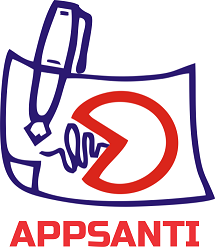Pandangan Guru Kimia SMA terhadap Integrasi Kecerdasan Buatan dalam Pembelajaran di Era Digital
DOI:
https://doi.org/10.24036/nara.v4i3.368Keywords:
Artificial intelligence, Pembelajaran kimia, Pandangan guru, SMAAbstract
Artificial Intelligence (AI) menawarkan potensi besar dalam meningkatkan pembelajaran kimia di SMA. Penerapan teknologi AI dalam pendidikan menjadi kebutuhan yang mendesak, terutama untuk membantu guru dalam perencanaan, pelaksanaan, dan evaluasi pembelajaran. Namun, pemanfaatan AI di sekolah terutama di daerah Kabupaten Sleman, masih menghadapi berbagai tantangan, termasuk keterbatasan pemahaman guru dan adaptasi teknologi AI yang relatif baru. Oleh karena itu, penting dilakukan penelitian ini untuk memahami sejauh mana pandangan guru terhadap pembelajaran kimia berbasis AI dan kendala yang dihadapi. Penelitian ini bertujuan untuk mengidentifikasi pandangan guru teradap pembelajaran kimia berbasis AI. Metode penelitian ini menggunakan pendekatan kualitatif jenis studi kasus yang melibatkan 20 orang guru kimia di berbagai SMA Negeri di Kabupaten Sleman sebagai responden, yang dipilih melalui teknik purposive sampling. Pengambilan data melalui observasi, wawancara, dan dokumentasi. Tehnik analisis data menggunakan Miles dan Huberman, yaitu reduksi data, penyajian data, dan kesimpulan. Temuan menunjukkan bahwa kebanyakan guru baru mempunyau pemahaman dasar tentang AI dan baru tertarik menggunakannya. Aplikasi AI seperti ChatGPT dan Gemini AI menjadi pilihan utama. Guru melihat AI bisa memberikan umpan balik lebih cepat dan meningkatkan semangat belajar siswa. Meskipun begitu, ada beberapa kendala seperti guru yang belum terlalu paham cara menggunakan AI, fasilitas sekolah yang kurang mendukung, dan kekhawatiran soal kualitas informasi data dari AI. Kebanyakan guru juga belum pernah ikut pelatihan teknologi AI. Selain itu, penting agar ada lebih banyak pelatihan AI, fasilitas sekolah ditingkatkan, dan AI digunakan dengan bijak.
References
Abdulsahib, A. K., Mohammed, R., Ahmed, A. L., & Jaber, M. M. (2024). Artificial intelligence based computer vision analysis for smart education interactive visualization. Fusion: Practice and Applications, 15(2), 245–260. https://doi.org/10.54216/FPA.150221
Akavova, A., Temirkhanova, Z., & Lorsanova, Z. (2023). Adaptive learning and artificial intelligence in the educational space. E3S Web of Conferences, 451, 1–4. https://doi.org/10.1051/e3sconf/202345106011
Ali, O., Murray, P. A., Momin, M., Dwivedi, Y. K., & Malik, T. (2024). The effects of artificial intelligence applications in educational settings: Challenges and strategies. Technological Forecasting and Social Change, 199(12), 1–18. https://doi.org/10.1016/j.techfore.2023.123076
Assyakurrohim, D., Ikhram, D., Sirodj, R. A., & Afgani, M. W. (2022). Metode studi kasus dalam penelitian kualitatif. Jurnal Pendidikan Sains Dan Komputer, 3(01), 1–9. https://doi.org/10.47709/jpsk.v3i01.1951
Barrett, A., & Pack, A. (2023). Not quite eye to A.I.: student and teacher perspectives on the use of generative artificial intelligence in the writing process. International Journal of Educational Technology in Higher Education, 20(1), 1–24. https://doi.org/10.1186/s41239-023-00427-0
Bellas, F., Naya-Varela, M., Mallo, A., & Paz-Lopez, A. (2024). Education in the AI era: A long-term classroom technology based on intelligent robotics. HUMANITIES AND SOCIAL SCIENCES COMMUNICATIONS, 11(1), 1–20. https://doi.org/https://doi.org/10.1057/s41599-024-03953-y 2 HUMANITIES
Berisha, F. (2020). Chemistry education in kosovo: Issues, challenges and time for action. Center for Educational Policy Studies Journal, 10(1), 125–144. https://doi.org/10.26529/cepsj.728
Chan, C. K. Y., & Hu, W. (2023). Students’ voices on generative AI: Perceptions, benefits, and challenges in higher education. International Journal of Educational Technology in Higher Education, 20(1), 1–18. https://doi.org/10.1186/s41239-023-00411-8
Cox, A. M. (2021). Exploring the impact of Artificial Intelligence and robots on higher education through literature-based design fictions. International Journal of Educational Technology in Higher Education, 18(1), 1–19. https://doi.org/10.1186/s41239-020-00237-8
Deng, J. M., Lalani, Z., McDermaid, L. A., & Szozda, A. R. (2023). Using generative artificial intelligence in chemistry education research: prioritizing ethical use and accessibility. Journal of Chemical Education, 1–22. https://doi.org/https://doi.org/10.26434/chemrxiv-2023-24zfl
Feldman-Maggor, Y., Blonder, R., & Alexandron, G. (2025). Perspectives of generative AI in chemistry wducation within the TPACK framework. Journal of Science Education and Technology, 34(1), 1–12. https://doi.org/10.1007/s10956-024-10147-3
Filiz, O., Kaya, M. H., & Adiguzel, T. (2025). Teachers and AI: Understanding the factors influencing AI integration in K-12 education. Education and Information Technologies, 30(13), 17931–17967. https://doi.org/10.1007/s10639-025-13463-2
Gökçearslan, Ş., Tosun, C., & Erdemir, Z. G. (2024). Benefits, challenges, and methods of Artificial Intelligence (AI) Chatbots in education: A systematic literature review. International Journal of Technology in Education, 7(1), 19–39. https://doi.org/10.46328/ijte.600
Gustilo, L., Ong, E., & Lapinid, M. R. (2024). Algorithmically-driven writing and academic integrity: exploring educators’ practices, perceptions, and policies in AI era. International Journal for Educational Integrity, 20(1), 2–43. https://doi.org/10.1007/s40979-024-00153-8
Hao, M., Wang, Y., & Peng, J. (2024). Empirical research on AI technology-supported precision teaching in high school science subjects. Applied Sciences (Switzerland), 14(17), 1–21. https://doi.org/10.3390/app14177544
Hindun, & Pratomo, H. (2024). Chemical educatin chemistry learning anxiety profile of phase E students of public senior high school in Sleman regency. Indonesian Journal of Chemical Education, 1(1), 1–6.
Ilić, M., Mikić, V., Kopanja, L., & Vesin, B. (2023). Intelligent techniques in e-learning: A literature review. In Artificial Intelligence Review (Vol. 56, Issue 12). Springer Netherlands. https://doi.org/10.1007/s10462-023-10508-1
Imran, M., & Almusharraf, N. (2024). Google Gemini as a next generation AI educational tool: a review of emerging educational technology. Smart Learning Environments, 11(1), 1–8. https://doi.org/10.1186/s40561-024-00310-z
Iyamuremye, A., Niyonzima, F. N., Mukiza, J., Twagilimana, I., Nyirahabimana, P., Nsengimana, T., Habiyaremye, J. D., Habimana, O., & Nsabayezu, E. (2024). Utilization of artificial intelligence and machine learning in chemistry education: a critical review. Discover Education, 3(1), 1–15. https://doi.org/10.1007/s44217-024-00197-5
Khudai Qul Khaliqyar, Katebzadah, S., & Hakimi, M. (2023). A comprehensive analysis of the effectiveness of AI platforms in improving student eduvcational skills. International Journal of Integrated Science and Tecnology (IJIST), 1(6), 882–901. https://doi.org/DOI: https://doi.org/10.59890/ijist.v1i6.1103
Kim, J., & Shim, J. (2022). Development of an AR-based AI education app for non-majors. IEEE Access, 10(2), 14149–14156. https://doi.org/10.1109/ACCESS.2022.3145355
Lawrence, L. E. M., Echeverria, V., Yang, K., Aleven, V., & Rummel, N. (2024). How teachers conceptualise shared control with an AI co-orchestration tool: A multiyear teacher-centred design process. British Journal of Educational Technology, 55(3), 823–844. https://doi.org/10.1111/bjet.13372
Lee, D., Arnold, M., Srivastava, A., Plastow, K., Strelan, P., Ploeckl, F., Lekkas, D., & Palmer, E. (2024). The impact of generative AI on higher education learning and teaching: A study of educators’ perspectives. Computers and Education: Artificial Intelligence, 6(3), 100–221. https://doi.org/10.1016/j.caeai.2024.100221
Leitea, B. S. (2023). Artificial intelligence and chemistry teaching: A propaedeutic analysis of chatgpt in chemical concepts defining. Quimica Nova, 46(9), 915–923. https://doi.org/10.21577/0100-4042.20230059
Lin, C. C., Huang, A. Y. Q., & Yang, S. J. H. (2023). A Review of AI-driven conversational Chatbots implementation methodologies and challenges (1999–2022). Sustainability (Switzerland), 15(5), 1–14. https://doi.org/10.3390/su15054012
Magana, A. J., Mubarrat, S. T., Kao, D., & Benes, B. (2024). AI-based automatic detection of online teamwork engagement in higher education. IEEE Transactions on Learning Technologies, 17(1), 1–16. https://doi.org/10.1109/tlt.2024.3456447
Malik, A. R., Pratiwi, Y., Andajani, K., Numertayasa, I. W., Suharti, S., Darwis, A., & Marzuki. (2023). Exploring artificial intelligence in academic essay: Higher education student’s perspective. International Journal of Educational Research Open, 5(2), 1–11. https://doi.org/10.1016/j.ijedro.2023.100296
Moya, S., & Camacho, M. (2024). Leveraging AI-powered mobile learning: A pedagogically informed framework. Computers and Education: Artificial Intelligence, 7(2), 1–12. https://doi.org/10.1016/j.caeai.2024.100276
Mustafa, M. Y., Tlili, A., Lampropoulos, G., Huang, R., Jandrić, P., Zhao, J., Salha, S., Xu, L., Panda, S., Kinshuk, López-Pernas, S., & Saqr, M. (2024). A systematic review of literature reviews on artificial intelligence in education (AIED): a roadmap to a future research agenda. Smart Learning Environments, 11(1), 1–33. https://doi.org/10.1186/s40561-024-00350-5
Okulich-Kazarin, V., Artyukhov, A., Skowron, Ł., Artyukhova, N., & Wołowiec, T. (2024). Will AI become a threat to higher education sustainability? A study of students’ views. Sustainability (Switzerland), 16(11). https://doi.org/10.3390/su16114596
Ouyang, F., & Jiao, P. (2021). Artificial intelligence in education: The three paradigms. Computers and Education: Artificial Intelligence, 1(4), 1–5. https://doi.org/https://doi.org/10.1016/j.caeai.2021.100020
Pahmi, P., Liping Deng, & Marissa Syafwin. (2022). Using the Capcut application as a learning media. Journal International Inspire Education Technology, 1(1), 40–51. https://doi.org/10.55849/jiiet.v1i1.37
Qomaruddin, & Sa’diyah, H. (2024). Kajian teoritis tentang teknik analisis data dalam penelitian kualitatif: Perspektif Spradley, Miles dan Huberman. Journal of Management, Accounting and Administration, 1(2), 77–84. https://doi.org/https://doi.org/10.52620/jomaa.v1i2.93
Rachmawati, I. N. (2007). Pengumpulan data dalam penelitian kualitatif: Wawancara. Jurnal Keperawatan Indonesia, 11(1), 35–40. https://doi.org/10.7454/jki.v11i1.184
Rahioui, F., Jouti, M. A. T., & Ghzaoui, M. El. (2024). Exploring complex biological processes through artificial intelligence. Journal of Educators, 21(2), 155–170. https://doi.org/10.9743/jeo.2024.21.2.9
Ramirez, E. A. B., & Esparrell, J. A. F. (2024). Artificial intelligence (AI) in education: Unlocking the perfect synergy for learning. Educational Process: International Journal, 13(1), 35–51. https://doi.org/10.22521/edupij.2024.131.3
Rane, N., Choudhary, S., & Rane, J. (2024). Gemini versus ChatGPT: applications, performance, architecture, capabilities, and implementation. Journal of Applied Artificial Intelligence, 5(1), 69–93. https://doi.org/10.48185/jaai.v5i1.1052
Rejeb, A., Rejeb, K., Appolloni, A., Treiblmaier, H., & Iranmanesh, M. (2024). Exploring the impact of ChatGPT on education: A web mining and machine learning approach. International Journal of Management Education, 22(1), 1–14. https://doi.org/10.1016/j.ijme.2024.100932
Rima Trianingsih, Isna Nurul Inayati, R. F. (2019). Pengaruh keluarga broken home terhadap perkembangan moral dan psikososial siswa kelas V SDN 1 Sumberbaru Banyuwangi. JURNAL PENA KARAKTER: Jurnal Pendidikan Anak Dan Karakter, 02(01), 9–16. https://e-journal.hikmahuniversity.ac.id/index.php/jpk/article/view/4
Rojas, A. J. (2024). An Investigation into ChatGPT’s application for a scientific writing assignment. Journal of Chemical Education, 101(5), 1959–1965. https://doi.org/10.1021/acs.jchemed.4c00034
Salleh, M. F. M., Rauf, R. A. A., Saat, R. M., & Ismail, M. H. (2022). Novice chemistry teachers’ instructional strategies in teaching mixed-ability classrooms. Asian Journal of University Education, 18(2), 510–525. https://doi.org/10.24191/ajue.v18i2.18066
Saritepeci, M., & Yildiz Durak, H. (2024). Effectiveness of artificial intelligence integration in design-based learning on design thinking mindset, creative and reflective thinking skills: An experimental study. Education and Information Technologies. https://doi.org/10.1007/s10639-024-12829-2
Tassoti, S. (2024). Assessment of Students Use of Generative Artificial Intelligence: Prompting Strategies and Prompt Engineering in Chemistry Education. Journal of Chemical Education, 101(6), 2475–2482. https://doi.org/10.1021/acs.jchemed.4c00212
Utami, S., & Karnedi, K. (2024). Enhancing students’ writing paragraphs through Canva Magic AI. Leksika: Jurnal Bahasa, Sastra Dan Pengajarannya, 18(2), 105–116. https://doi.org/10.30595/lks.v18i2.23475
Woodruff, E. (2024). AI detection of human understanding in a gen-AI tutor. AI (Switzerland), 5(2), 898–921. https://doi.org/10.3390/ai5020045
Yuriev, E., Wink, D. J., & Holme, T. A. (2024). The Dawn of Generative Artificial Intelligence in Chemistry Education. Journal of Chemical Education, 101(8), 2957–2959. https://doi.org/10.1021/acs.jchemed.4c00836
Downloads
Published
How to Cite
Issue
Section
License
Copyright (c) 2025 Author

This work is licensed under a Creative Commons Attribution-ShareAlike 4.0 International License.








.png)












